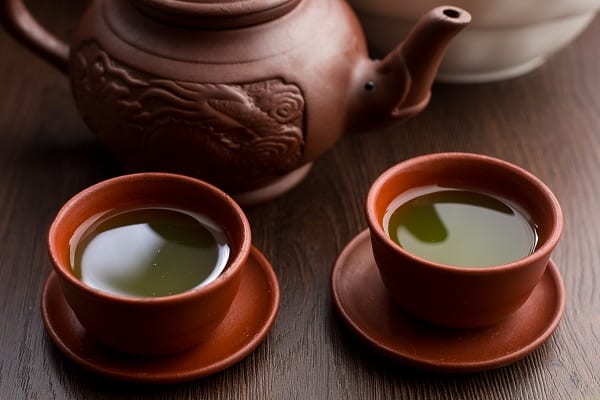Are you looking for a natural and delicious way to combat inflammation? You might want to consider reaching for a cup of tea. The allure of tea goes beyond its soothing warmth and diverse flavors. Certain types of tea are packed with powerful compounds that can help reduce inflammation and promote overall wellness. In a world where health is wealth, incorporating anti-inflammatory foods into your diet is an investment that can yield valuable returns.
This article explores the potent world of teas, specifically those with impressive anti-inflammatory properties. You’ll delve into the science behind inflammation and diet, understand the anti-inflammatory properties of various teas, and learn how to incorporate these teas into your daily routine.
Contents
The Science Behind Inflammation And Diet

Inflammation is our body’s natural response to injury or illness, a vital part of the healing process. However, when inflammation becomes chronic, it can be detrimental to our health. Stress, lack of exercise, and diet can contribute to chronic inflammation. Foods high in refined sugar, unhealthy fats, and processed ingredients often cause inflammation, while foods rich in antioxidants and anti-inflammatory compounds can help reduce it.
This is where an anti-inflammatory diet comes into play. Essentially, it’s a pattern of eating that prioritizes foods known for their inflammation-fighting abilities. This diet emphasizes fruits, vegetables, whole grains, healthy fats, and certain types of tea. Not only does scientific research support the inflammation-busting benefits of this diet, but it also reveals that it promotes overall well-being and protects against numerous diseases.
Understanding the Anti-Inflammatory Properties of Tea

All tea comes from the same plant, Camellia sinensis. The difference in color and taste among various teas arises from the level of oxidation they undergo. Interestingly, these variations also affect the types and amounts of beneficial compounds in each tea. Antioxidants, particularly flavonoids, are one of these beneficial compounds prevalent in tea. These mighty molecules neutralize harmful free radicals, helping reduce inflammation.
Certain types of tea are particularly high in these anti-inflammatory compounds. For instance, green tea is lauded for its high concentration of a flavonoid called epigallocatechin gallate (EGCG), a potent antioxidant. On the other hand, herbal teas contain different beneficial compounds but are still known for their anti-inflammatory properties. So, it’s not just about sipping tea; choosing the right type can significantly contribute to the effectiveness of the anti-inflammatory diet.
Top 5 Teas For An Anti-Inflammatory Diet

Green tea, brimming with EGCG, is a well-documented warrior against inflammation. This delicate tea can be enjoyed hot or cold, making it a versatile addition to your diet. Moreover, multiple research studies have shown that regular consumption of green tea can protect against diseases associated with chronic inflammation, like heart disease and certain types of cancer.
White tea, less processed than green tea, boasts an even higher concentration of antioxidants. It has a subtle, delicate flavor and is lower in caffeine, making it a great choice for those sensitive to caffeine’s effects. Next, turmeric tea, steeped from the vibrant yellow-orange spice, is a powerhouse of curcumin, a strong anti-inflammatory compound. Turmeric tea has a unique, slightly earthy flavor, often enhanced with a touch of black pepper to increase curcumin’s bioavailability.
Rooibos tea, a naturally caffeine-free herbal tea from South Africa, has been gaining attention for its high anti-inflammatory and antioxidant compounds concentration. Its sweet, slightly nutty flavor makes it an enjoyable, calming beverage any time of day. Finally, chamomile tea, renowned for its calming properties, has anti-inflammatory benefits. Its gentle, apple-like flavor and soothing qualities make it a perfect bedtime drink.
How to Incorporate These Teas into Your Diet

Incorporating these teas into your daily routine doesn’t have to be a daunting task. Begin by replacing one of your daily beverages with a cup of one of these anti-inflammatory teas. Morning coffee drinkers might switch to green or white tea for a caffeine kick without the inflammation. Those who crave a soothing evening beverage might opt for chamomile or rooibos tea.
Timing can also play a part in maximizing these teas’ benefits. For instance, consuming green tea during or after meals can help increase the antioxidant absorption rate. Similarly, drinking turmeric tea with a meal that contains black pepper can improve the absorption of curcumin, maximizing its anti-inflammatory impact.
Incorporating Teas into Delicious Recipes

Embracing these anti-inflammatory teas doesn’t just have to be limited to the teapot. You can also incorporate them into your food to provide an added layer of flavor and health benefits. For instance, green tea leaves can be ground into a powder known as matcha, which can be used in smoothies, oatmeal, or baked goods for an antioxidant boost. Similarly, rooibos tea can create unique marinades for meat or tofu, lending its sweet and slightly nutty flavor to your dishes.
Another interesting idea is to use chamomile tea to create soothing popsicles, perfect for a hot day. Brew a strong chamomile tea, sweeten it with a little honey, and pour it into popsicle molds. Freeze, and you have a calming, anti-inflammatory treatment. Turmeric tea can be used as a base for a warming soup, or add a dash of turmeric powder to your regular tea for an anti-inflammatory upgrade. By getting creative in the kitchen, you can ensure your diet is brimming with anti-inflammatory benefits at every meal.
Potential Side Effects and Precautions

While the health benefits of these teas are impressive, it’s important to also be aware of potential side effects. For instance, while green and white teas have lower caffeine content than coffee, those sensitive to caffeine may still experience side effects like restlessness or trouble sleeping. Moreover, although rare, some people may have allergic reactions to certain herbal teas like chamomile.
Furthermore, turmeric’s active compound, curcumin, can interact with certain medications. Therefore, it’s always a good idea to consult with a healthcare provider before making any significant dietary changes or if you are taking any medication regularly. Remember, while these teas can complement an anti-inflammatory diet, they shouldn’t replace a balanced diet or prescribed treatment.
Conclusion
In combatting inflammation, incorporating these teas into your diet can be a natural, enjoyable, and effective step. There’s a brew for everyone, from the well-researched benefits of green and white tea to the unique anti-inflammatory properties of turmeric, rooibos, and chamomile teas. By understanding the science behind these teas and knowing how to incorporate them into your routine, you can harness their health benefits and contribute to a holistic approach to wellness.


